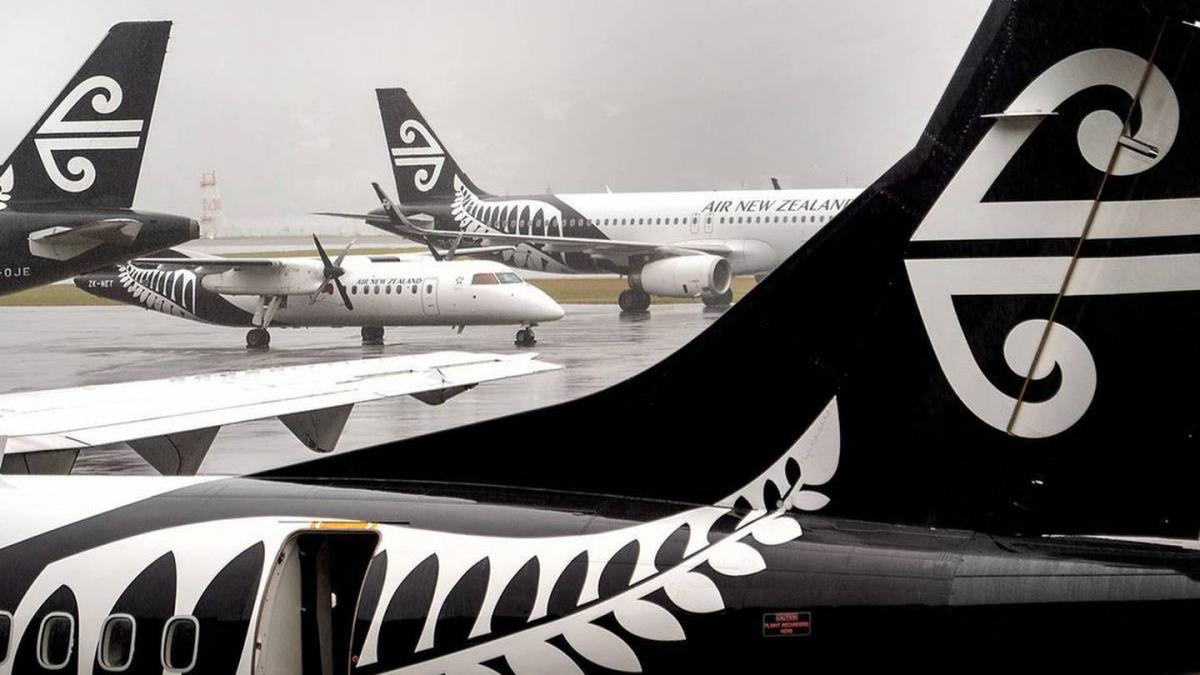
Tonight's announcement is one of the largest capital raises in New Zealand corporate history.
The national carrier plans to use the money to repay its Crown loan and help position them in the face of recovering from Covid travel restrictions.
The recapitalisation package is made up of three parts:
- A $1.2 billion pro rata renounceable Rights Offer, allowing eligible shareholders an opportunity to buy additional shares in Air New Zealand at a discount to the prevailing share price. The Government, which owns 51 per cent of Air NZ, will participate in the Rights Offer to retain its shareholding.
- A $600 million issuance of redeemable shares to the Crown, of which approximately $400 million is intended to refinance through an approximately $600 million debt issue, and
- A new $400 million Crown loan to replace the existing Crown loan facility, which is available to the airline through to January 2026.
"While there will still be bumpy skies ahead over the next few years, the moment is right for Air New Zealand to raise equity, recapitalise its balance sheet and repay the loan it received from the Crown during the Covid crisis. This is an important step in refuelling for our recovery," Air New Zealand chair Dame Therese Walsh said tonight.
"Covid isn't behind us yet. There will still be significant challenges and uncertainties to face, and it will take time to recover, but Air New Zealand is committed to rebuilding a stronger, more nimble airline that delivers for all New Zealanders".
Walsh said the plans would allow the airline to "survive, revive and thrive".
Air New Zealand chief executive Greg Foran said: "This is an important next step, as we are preparing to return to key international destinations, welcome international visitors back to New Zealand and launch a new service to New York.
"The last two years haven't been easy for our shareholders with the suspension of our dividend payments since 2020 and the decrease in equity reserves. Our shareholders have been top of mind as we took action to help mitigate the impact of the pandemic while positioning the airline to survive, then revive and finally thrive in the years to come.
"We're now focused on growing our domestic network, optimising our international routes and streamlining our fleet to more efficient and sustainable aircraft. And we're developing more benefits and value for our millions of Airpoints members.
"Our Kia Mau strategy sets a clear flight path for the coming years and while there will always be significant risks for the airline, importantly, our recapitalisation plan will help position us to thrive again."
Under the $1.2 billion rights offer, shareholders - which include retail investors through online platform Sharesies, will be offered 2 new shares for every 1 share they own in Air New Zealand at an offer price of NZ$0.53 per share.
Those shareholders who take up their full entitlement will also be able to apply for additional shares in a "shortfall bookbuild process".
Shareholders who choose not to participate have the option of selling some or all of their rights on the NZX or, if they do nothing, they may receive some value through the shortfall bookbuild process, if the price determined in the shortfall bookbuild process exceeds the offer price.
Air New Zealand's shares last traded at $1.37 before being placed in a trading halt ahead of tonight's announcement.
Trading halt
Air New Zealand said earlier that a trading halt will remain in place until the sharemarket opens tomorrow. Shares were trading at $1.38, down nearly 2 per cent before that announcement.
The airline said in February the much-delayed announcement was scheduled for around the end of this month, depending on market conditions.
The easing of border restrictions by the Government - Air New Zealand's 52 per cent owner - have been critical in improving the outlook for the airline although competitors also benefit from the move.
Although oil prices have spiked due to the Ukraine invasion they have settled back - although at elevated levels.
Air New Zealand plunged to a pre-tax loss of $376 million for the first half of this year and it warned losses will exceed $800 million for the full year.













